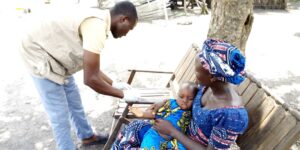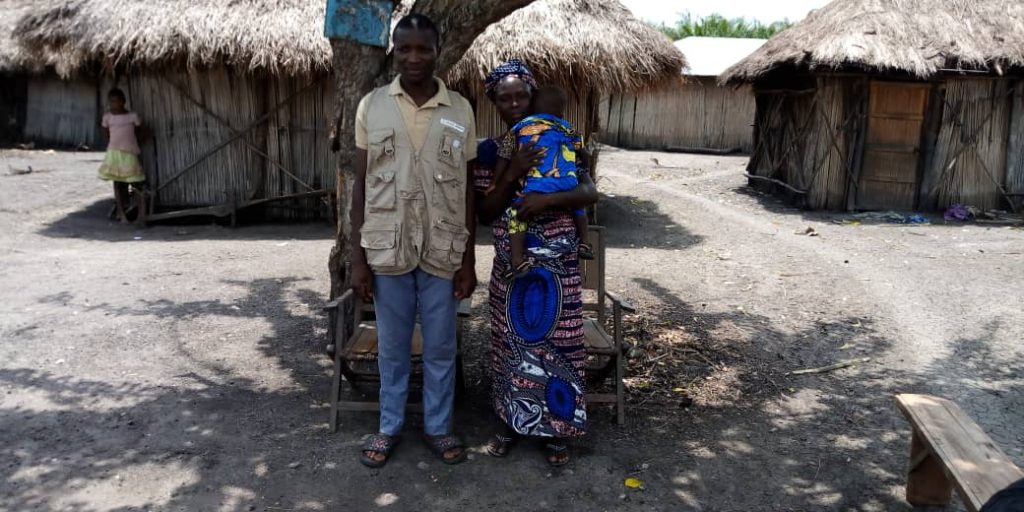
Community health worker Maxime Ako tests Rose Monni’s 32-month-old son Israel for malaria in their village in Benin. Photo by Janviette Hounnou for BUPDOS.
Rose Monni’s 32-month old son, Israel, had a fever, and she was worried. If she did nothing, Israel might die. In their village of Bolimé, in southwestern Benin, the mortality rate for children under five years old is high due to malaria, acute respiratory infections, diarrhea, measles, and the common practices of self-medication and traditional healing.
Because the nearest health facility was six kilometers away and too far to easily carry her son by foot or by bike, Rose chose to take Israel to local community health worker (CHW) Maxime Ako. Pricking the child’s finger, Maxime used a rapid diagnostic test (RDT) to confirm that he had malaria. He then gave Israel medication – artemisinin combined therapy (ACT) and paracetamol – and directed Rose on how to follow up for further treatment.
Rose was amazed to see Maxime performing in her remote village the same medical procedure that she previously had to travel a long distance to receive. She was even more surprised when she asked how much she owed for the services. “You pay nothing, Madame Monni,” said Maxime, who went on to explain that malaria care is free for children under five through a Government of Benin program supported by the U.S. Agency for International Development (USAID) with funding from the U.S. President’s Malaria Initiative.
Rose has since become an ambassador for this good news in Bolimé. She now directs all women whose children have fever to the CHW for diagnosis and treatment, so they too can benefit from the services available in the village.
Maxime was trained on how to properly test for and treat malaria through a maternal, newborn and child health (MNCH) program through BUPDOS, a local non-governmental organization (NGO) funded by USAID. BUPDOS extended support to Bolimé because of the poor health conditions in Bopa, the district where Bolimé is located. Eighteen other districts are also benefiting from the MNCH program implemented by BUPDOS and two other local NGOs.
Thanks to U.S. funds, 873 health workers in Benin were trained on how to diagnose malaria, either by using an RDT or microscope in 2018. And 1,168 health workers — including 813 like Maxime who work at the community level — were trained how to manage malaria cases using ACTs.
According to recent health data, the number of cases of malaria and also the number of deaths of children under five in the village of Bolimé have decreased significantly due to Maxime’s work. The community is happy and strongly supports Maxime in his daily work for the health of children like Rose’s son Israel.

